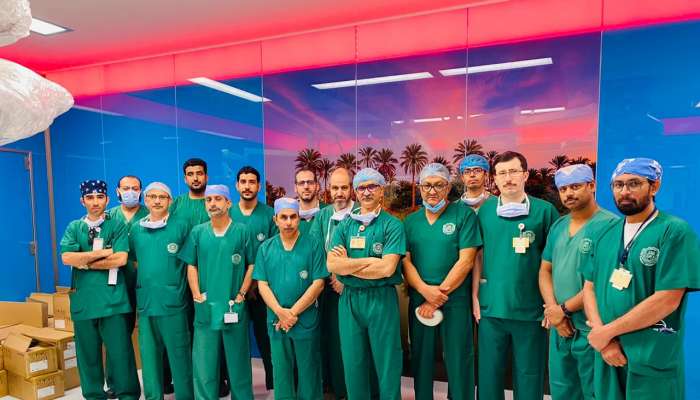
Muscat: A mother of three underwent life-saving surgery to fix a rare heart condition that left her with severe shortness of breath and chest pain.
The woman was suffering from a rare disease known as automatic coronary dissection, which disease affects the coronary arteries of the heart and occurs more often in women under the age of 50 years.
A medical team at Sultan Qaboos University Hospital has managed to save her life, with the hospital saying in a statement,
“The operation was accompanied by the use of a new technique that demonstrated the advanced skills of the surgical team, represented by replacing three arteries in the heart, which was successful.”
“The surgery will be documented and published as a scientific paper in a refereed international scientific journal, so that the benefit is widespread among specialists in cardiothoracic surgery around the world,” added the hospital.
“The operation was performed by a medical team of surgeons chaired by Dr Hilal Al Sabti, CEO of Oman Medical Specialty Board,” SQUH said in its statement.
“The operation was carried out by a medical team of surgeons headed by Dr Hilal Al Sabti, and the team also included Dr Adel Al Kindi, a senior consultant cardiothoracic surgeon, Dr Davron Mogdarov, senior specialist in cardiothoracic surgery, and a number of doctors in the field of anaesthesiology, perfusion technicians, and nurses.”
The patient - a mother of three children, the youngest of whom is eight months old - suffered from chest pain and shortness of breath, and was treated at a reference hospital in the Sultanate.
Initial diagnostic tests showed an increase in heart enzymes, while a cardiac catheterisation showed a dissection in one of the coronary arteries that feeds the organ.
The patient was first treated with medication, but the symptoms returned to her and she was admitted to hospital, where she was again found to have elevated heart enzymes.
She underwent a second cardiac catheterisation, and the dissection expanded in the coronary arteries to the branch arteries.
After communicating with the medical staff at Sultan Qaboos University Hospital, the concerned team received the patient, and after consultations, treatment began according to the following medical protocol, which is to monitor the patient’s response to drug treatment and the disappearance of pain until she stabilises.
After her symptoms refused to abate, the medical team took the difficult decision to conduct an urgent operation in order to save her life.
The number of coronary arteries extended under dissection were more than usual, which is what happens in only 10 per cent of cases.
The dissection had reached a stage where it had impacted her main artery, leading to the high possibility of death.
Another concern the medical team had was whether her heart would be able to resume pumping blood after her surgery had ended.
Despite being faced with these odds, the medical team and the patient had no alternative but to take a firm decision in performing a difficult and dangerous operation. Challenges continued to mount, when the surgical team found out that all of the patient’s arteries on the left side of her heart were completely dissected.
This necessitated their replacement and implantation of three other arteries - one from the chest and two from the leg - and after many hours spent in the operating room trying to save her life, the operation was a success.